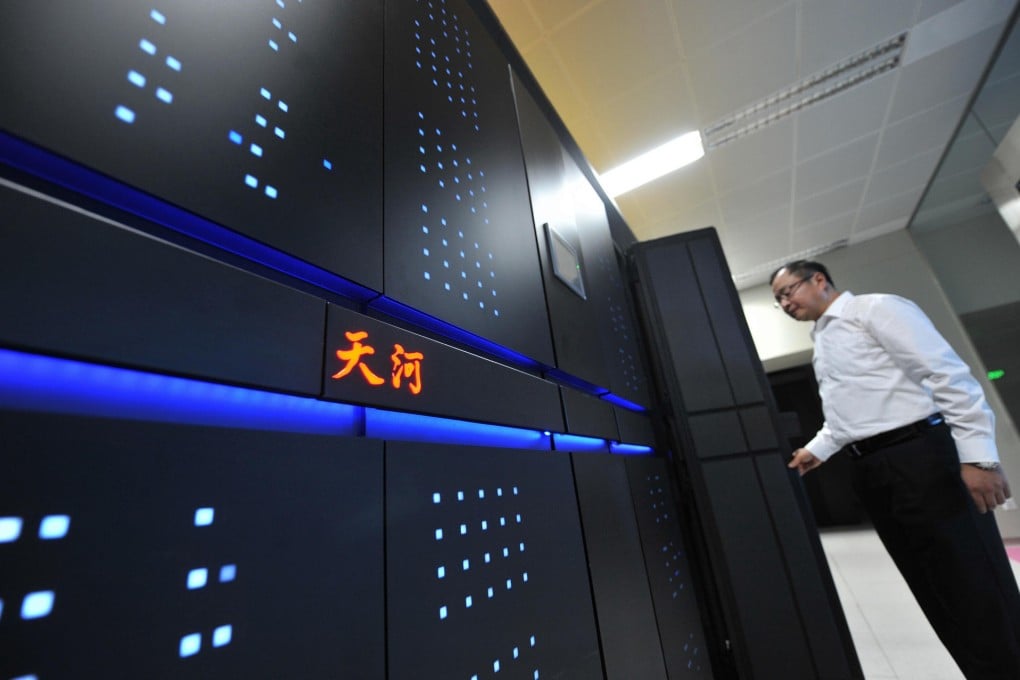China's world-beating supercomputer fails to impress some potential clients
The Tianhe-2 has again topped the global rankings, but a lack of investment on software limits its use, researchers say

The mainland's billion-yuan supercomputer might be the most powerful in the world, but some researchers say its benefit to them is limited by its high operating cost and a lack of software.
Tianhe-2 last week held onto its first-place ranking in the Top 500 charts, which measures the capacity of the world's supercomputers. It performed at a sustained 33.86 petaflops, or quadrillions of calculations per second.
But all that muscle is not translating into practical use, some potential clients say. One problem is cost. The electricity bill for the machine at the Sun Yat-sen University campus in Guangzhou runs between 400,000 yuan (HK$485,400) and 600,000 yuan a day, which ultimately falls to the user.
Another obstacle remains a lack of software, they say. Tianhe-2 has been used for railway design, earthquake simulation, astrophysics and genetic studies. But so far investment has focused on hardware, forcing clients to write the programmes to allow them to use it.
Some voiced their criticisms yesterday in a meeting with Guangzhou's deputy mayor, Wang Dong.
"It is at the world's frontier in terms of calculation capacity, but the function of the supercomputer is still way behind the ones in the US and Japan," said Chi Xuebin, deputy director of the Computer Network and Information Centre under the Chinese Academy of Sciences.
"It's like a giant with a super body but without the software to support its thinking soul," Chi said. Some users would need years or even a decade to write the necessary code, he added.